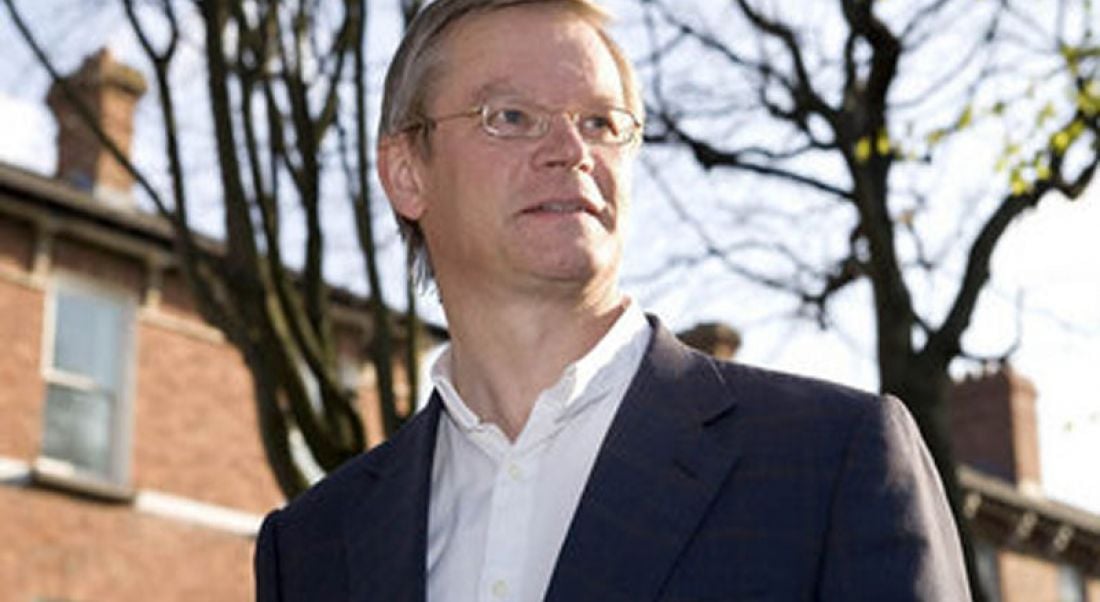For entrepreneur and investor Chris Horn, who led Iona from a start-up to the pinnacle of NASDAQ IPOs and eventually selling the company for US$162m, Ireland has a flourishing start-up scene. However, more exits and clever people management by founders and CEOs are necessary to excel.
Horn, along with Colin Newman and Sean Baker, started their middleware company Iona from a small corner in Trinity College Dublin’s computer science department in the early 1990s.
The company had a slow steady growth fuelled by bootstrapping and winning EU research grants and dealing with being turned down by local venture capitalists before an investment in the company by Sun Microsystems, as well as a landmark technology deal with Boeing, propelled the unassuming founders into the business stratosphere.
In 1997, Iona became the second ever Irish technology company to go public on the NASDAQ exchange, the fifth largest IPO in NASDAQ history at that time, raising US$137m in the process.
At its peak in 2000 Iona, which was leading the world in the development of middleware for large enterprises, was worth US$1.75bn and had an annual turnover in excess of US$100m.
Iona was sold in 2008 for US$162m to US firm Progress Software.
Horn, who has been involved in starting cloud-based technology companies such as CloudSmith, is currently a partner at Dublin-based venture capital firm Atlantic Bridge, where he looks at European and US start-ups.
He will be speaking tomorrow night at the unveiling of the Harvey Nash 2013 CIO Survey on the subject of the challenges of attracting and retaining staff in indigenous and multinational firms.
Irish tech scene punches above its weight
Horn says there are reasons for Ireland to feel optimistic about its tech start-up scene. “It is so much better than it had been when we started. When we tried to raise funding nobody would give us the time of day, but if you look at the funding scene now a few decades later, the level of interest from angel investors is much stronger than it was.
“Ireland is doing very well in terms of risk capital and while it is not the same as Silicon Valley, it is much healthier than it used to be. I think the ending of the property boom, which starved the tech sector of risk capital, was significant and it has gotten healthier.
“For the companies themselves, not every venture succeeds and many have to pivot in a different direction. It all comes down to the talent and experience of the team, but also the investors and advisers who help them.
“I don’t think there is any special magic to it, it’s the same dynamic as Silicon Valley in many respects.”
Horn says that what has changed is not only the existence of more angel investment, it is the interest from overseas start-ups willing to locate in Ireland.
“Compared to the rest of Europe, we are pretty healthy here in terms of the investment available.
“But at the end of the day, angel investment and venture capital does not work unless there are exits.
“It is all about return on capital. It is not about how much money is going into the companies that is important it is the amount of return that comes from the money that is deployed. If you’re not getting a good return on the money that is deployed then venture capital is not going to work, no matter what.
“Investment levels will only grow when there are more exits, providing evidence that there is a good bang per buck by investing in Ireland; it is all about exits.”
This, Horn says, has the effect of seeing entrepreneurs who have exited put money back into the ecosystem. “Exits create wealth that can be reinvested and some entrepreneurs tend to go again for a second or third time as founders or as angel investors. In my day, there were no serial entrepreneurs but there are today.
“This is part of what I call the positive feedback loop: exiting activity is the engine for more growth.”
From a pan-European perspective, Ireland is doing very well, if you exclude Israel.
“Israel is exceptional because the amount of risk capital is more than what is available for all of Europe. But if you look at all the EU member states, Ireland is doing very well.”
People management as vital as cash flow
Money is one factor, but ultimately people are the key to building successful technology companies and Horn says there is evidence of many young start-ups emerging from the ranks of middle management of multinationals, not to mention young entrepreneurs emerging from universities.
“Look at Digital Equipment Corporation and companies like Parthus Technologies, who have spawned plenty of start-ups.”
Characteristically modest, Horn forgets to mention that between 20 and 30 software companies emerged from the ranks of ex-Iona workers.
He says the retention of good people is an acute problem for local, indigenous start-ups, especially since they must compete with high wages and perks offered by multinationals.
“I know one or two indigenous firms who are competing by offering extremely lucrative terms on par with the multinationals but that wouldn’t be the case across the board.”
He says one of the best tips for staff retention came from one of his mentors when he was starting out.
“He asked me, what is the one thing I should be able to do for my staff? I didn’t know how to answer that and he said, ‘Improve their CVs. When they leave you (and they will leave you eventually) ensure that their CV has been dramatically improved by working with you’.
“And I thought that overall that was the best advice and a decent thing to try and do and I have tried to adopt it in a number of ways: improve their CVs.”




